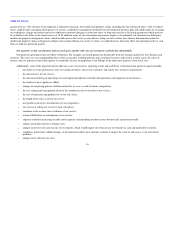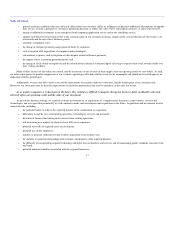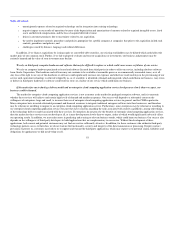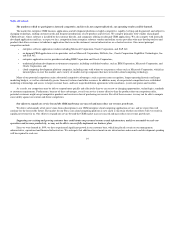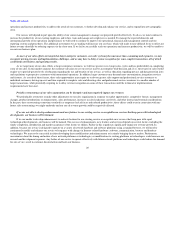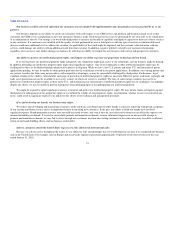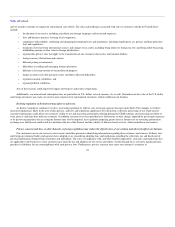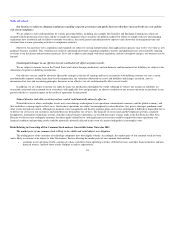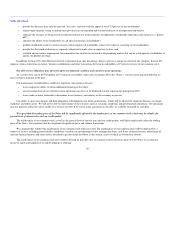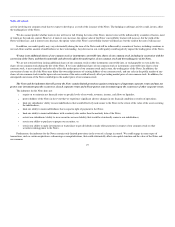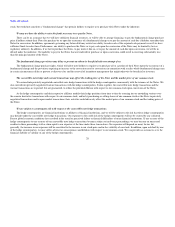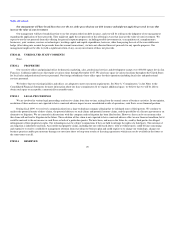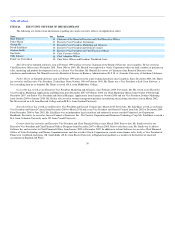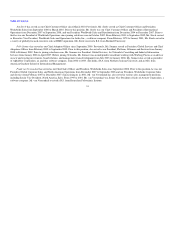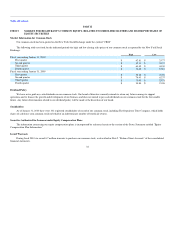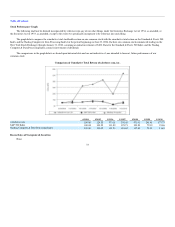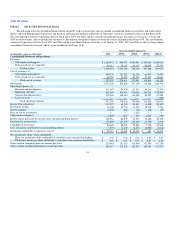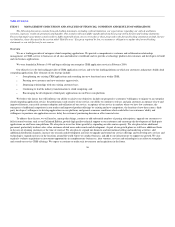Salesforce.com 2009 Annual Report Download - page 29
Download and view the complete annual report
Please find page 29 of the 2009 Salesforce.com annual report below. You can navigate through the pages in the report by either clicking on the pages listed below, or by using the keyword search tool below to find specific information within the annual report.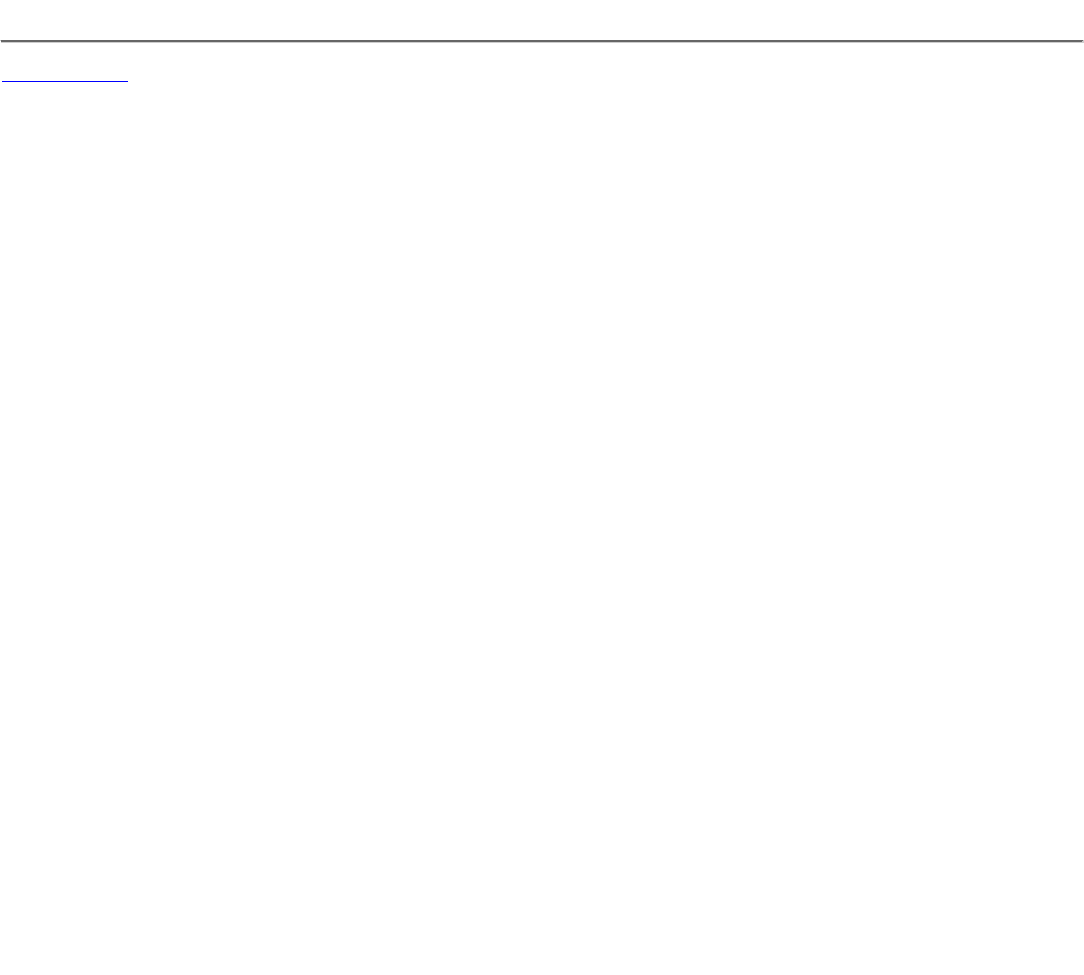
Table of Contents
• provide that directors may only be removed "for cause" and only with the approval of 66 2/3 percent of our stockholders;
• require super-majority voting to amend some provisions in our amended and restated certificate of incorporation and bylaws;
• authorize the issuance of "blank check" preferred stock that our board could use to implement a stockholder rights plan (also known as a "poison
pill");
• eliminate the ability of our stockholders to call special meetings of stockholders;
• prohibit stockholder action by written consent, which requires all stockholder actions to be taken at a meeting of our stockholders;
• provide that the board of directors is expressly authorized to make, alter or repeal our bylaws; and
• establish advance notice requirements for nominations for election to our board or for proposing matters that can be acted upon by stockholders at
annual stockholder meetings.
In addition, Section 203 of the Delaware General Corporation Law may discourage, delay or prevent a change in control of our company. Section 203
imposes certain restrictions on merger, business combinations and other transactions between us and holders of 15 percent or more of our common stock.
Our debt service obligations may adversely affect our financial condition and cash flows from operations.
As a result of our sale of $575.0 million of 0.75 percent convertible senior notes in January 2010 (the "Notes"), we now have long-term debt that we
have not had to maintain in the past.
Our maintenance of indebtedness could have important consequences because:
• it may impair our ability to obtain additional financing in the future;
• an increased portion of our cash flows from operations may have to be dedicated towards repaying the principal in 2015;
• it may make us more vulnerable to downturns in our business, our industry or the economy in general.
Our ability to meet our expenses and debt obligations will depend on our future performance, which will be affected by financial, business, economic,
regulatory and other factors. We will not be able to control many of these factors, such as economic conditions and governmental regulations. Our operations
may not generate sufficient cash to enable us to service our debt. If we fail to make a payment on our debt, we could be in default on such debt.
We expect that the trading price of the Notes will be significantly affected by the market price of our common stock, which may be volatile, the
general level of interest rates and our credit quality.
The market price of our common stock, as well as the general level of interest rates and our credit quality, will likely significantly affect the trading
price of the Notes. Our common stock has experienced significant price and volume fluctuations.
We cannot predict whether the market price of our common stock will rise or fall. The market price of our common stock will be influenced by a
number of factors, including general market conditions, variations in our operating results, earnings per share, cash flows, deferred revenue, other financial
and non-financial metrics and other factors described in greater detail elsewhere in this section, many of which are beyond our control.
The market price of our common stock also could be affected by possible sales of common stock by investors who view the Notes as an attractive
means of equity participation in us and by hedging or arbitrage
26


